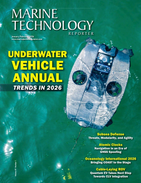
Transocean-Valaris Tie-Up to Create $17B Offshore Drilling Major with 73 Rigs
and shallow-water basins globally.The combined company is expected to have an offshore rig backlog of about $10 billion and more than $200 million in identified transaction-related cost synergies. Transocean’s management team will lead the merged company, with the group remaining incorporated in Switzerland and maintaining its primary administrative office in Houston.The transaction, approved by the boards of both companies, is expected to close in the second half of 2026, subject to regulatory approvals, customary closing conditions and shareholder approvals.“This transaction creates a very

Advanced Navigation Appoints CTO to Lead Technology Evolution
in environments where hesitation or uncertainty can mean mission failure.Pawel holds a PhD in Satellite Geodesy, an MBA, and multiple executive postgraduate qualifications from Stanford University in the US, Warsaw University of Technology in Poland, and Business School Lausanne in the Netherlands and Switzerland.Founded on a culture of research and discovery, Advanced Navigation’s mission is to be the catalyst of the autonomy revolution. By transforming deep research into deployable systems, it is enabling humanity to operate with confidence in environments once considered unreachable.Leading the
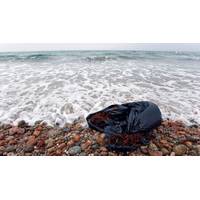
New Report Emphasizes Dangers of Plastic Pollution, Announces Global Monitoring System
As ministers and diplomats arrive in Geneva, Switzerland, for a final round of talks to conclude a UN-backed global plastics treaty, a new report published in the British medical journal The Lancet issues a stark warning: Plastic pollution is a grave and growing danger to human and planetary health. The report, which includes co-authors from the Woods Hole Oceanographic Institution’s (WHOI) Microplastics team, provides the most up-to-date assessment of the links between human health and plastic pollution across the full life cycle of plastic. A new monitoring system announced at the same
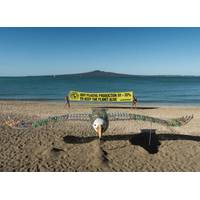
Plastic Free July and a Treaty in the Making
to phase out single-use plastics, stop using harmful chemicals and roll out accessible reuse and refill systems.”The demands come ahead of the second part of the fifth Intergovernmental Negotiating Committee (INC-5.2) session for a Global Plastics Treaty which is set to take place in Geneva, Switzerland, from August 5 to 14.Environmental organizations such as Greenpeace have been vocal on the need for an ambitious outcome.A plastic bag policy can lead up to 47% reduction of bag litter on shorelines, Greenpeace says. A 50% increase in refillables in coastal countries could reduce the number of
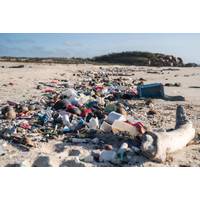
Call for Australia to Push for Robust Global Plastics Treaty
The second part of the fifth session of the Intergovernmental Negotiating Committee (INC-5.2) is scheduled to take place at the Palais des Nations in Geneva, Switzerland, from August 5 to 14.This second session will focus on finalizing an international legally binding instrument on plastic pollution. The treaty will address various aspects of plastic pollution, including production, design, trade, waste management, and a just transition. It will also address financial, technical, and capacity-building aspects.In the leadup, 31 First Nations and environmental groups have called on the Australian
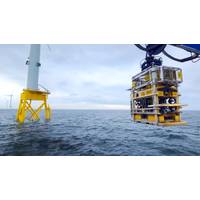
Swiss Firm Acquires Defunct Beam
Rosenxt UK, part of Switzerland-based Rosenxt Holding, has acquired selected assets and talent from subsea robotics and engineering firm Beam, which went into administration in May.The strategic move enhances Rosenxt’s subsea capabilities, reinforcing its long-term commitment to the critical infrastructure and energy sectors.Beam, formed in 2024 through the merger of Rovco and Vaarst, gained rapid recognition for its autonomous subsea systems and AI-powered technologies before ceasing operations in May 2025.Rosenxt’s acquisition does not constitute a continuation of all Beam’s former
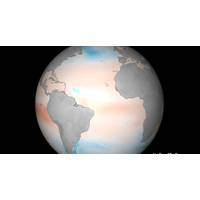
High-Resolution Mapping Reveals Carbon Sink Details
used to study the ocean carbon sink only provide monthly data and have a resolution of about 100 by 100 kilometers. This limited temporal and spatial resolution makes it difficult to capture the finer, more dynamic changes governing the ocean sink.Nicolas Gruber, from the ETH Zurich University in Switzerland, said: “Increasing the resolution of these global datasets is challenging because the number of direct measurements of carbon dioxide at the ocean’s surface is rather sparse across all regions and times.“To address this, we came up with a creative mix of machine learning methods

Edible Aquatic Robot Could Collect Environmental Data
An edible robot built by EPFL scientists in Switzerland uses a combination of biodegradable fuel and surface tension to move across the surface of water. It offers a safe and nutritious alternative to environmental sensors made from artificial polymers and electronics.The EPFL team plans to deploy the robots in large numbers. Each device would be equipped with biodegradable sensors to collect environmental data such as water pH, temperature, pollutants and the presence of microorganisms, which could be read after collection or via remote sensing.The work is the latest innovation in the burgeoning
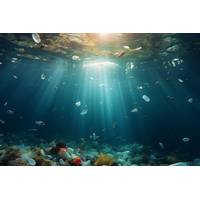
Microplastics Becoming Measurable Part of Ocean’s Carbon Cycle
for Marine-Earth Science and Technology in collaboration with FAU; Aotearoa Blue Ocean Research in New Zealand; Northeastern University; East China Normal University; NIOZ Royal Netherlands Institute for Sea Research, The Netherlands; The Ocean Cleanup, The Netherlands; Egger Research and Consulting, Switzerland; University of Amsterdam, The Netherlands; Utrecht University, The Netherlands; Universidad Catolica del Norte, Chile; Smithsonian Environmental Research Center; Harvard University; University of Siena, Italy; and the National Biodiversity Future Center, Italy

 February 2026
February 2026


